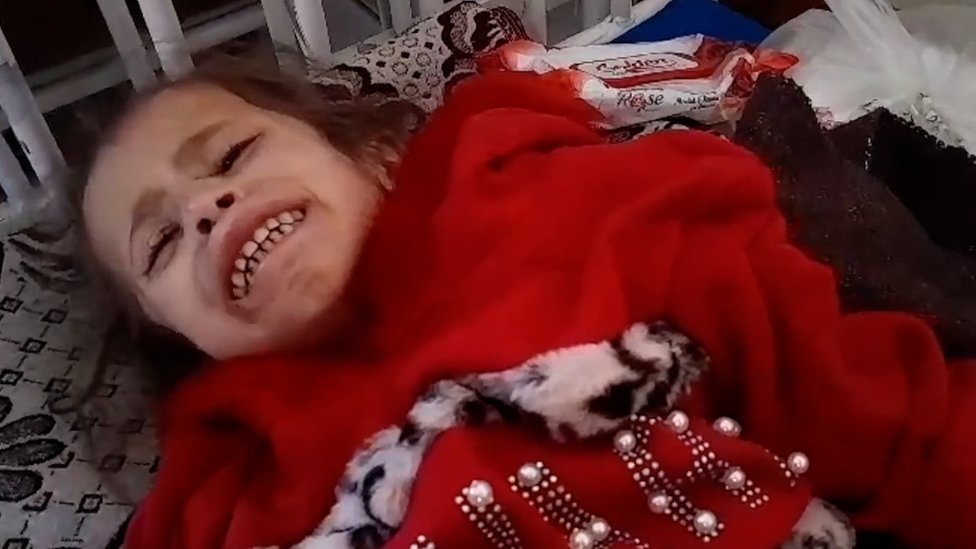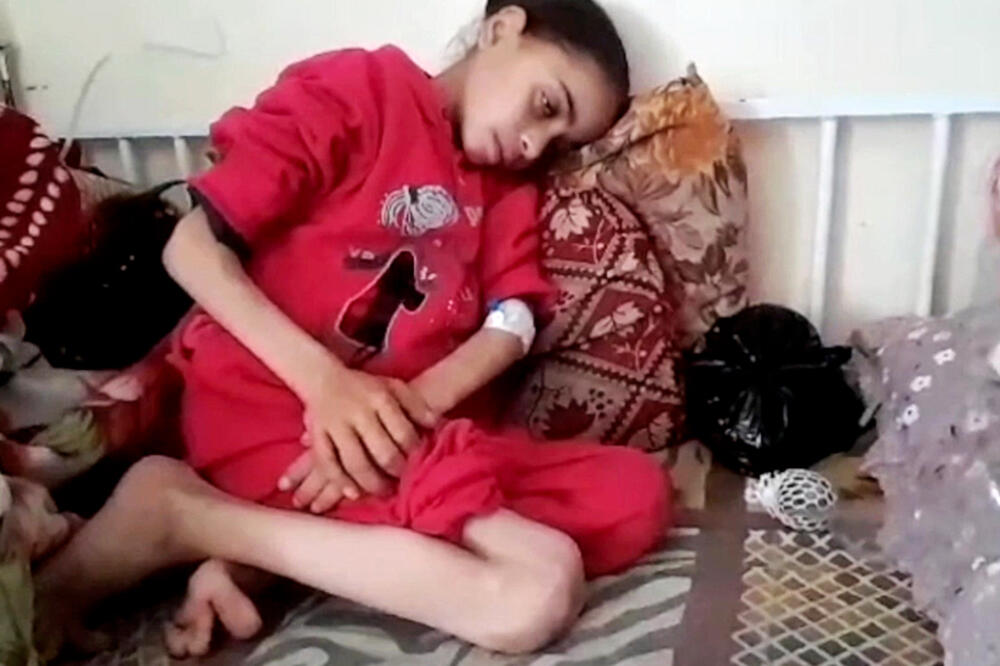After months of warnings, a report made in cooperation with the United Nations (UN) presented solid statistical evidence that the humanitarian disaster in Gaza is turning into a man-made famine.
This increased pressure on Israel to protect Palestinian civilians and allow humanitarian aid supplies to reach the people in need.
Volker Turk, a senior UN official, said in an interview with the BBC that Israel bears a significant responsibility here.
In fact, as he states, there is a "convincing" argument that Israel is using deliberate starvation in Gaza as a means of war, which, if proven, would amount to a war crime.
- What is hunger, when is it officially declared and why does it threaten Gaza
- Gazi is threatened with hunger during Ramadan, the holy month of fasting
- UN: Scores of bullet wounds on victims in Gaza food queue, US sends airlift
- UN legal investigator accuses Israel of genocide in Gaza
Israeli Economy Minister Nir Barkat, a senior official in Prime Minister Benjamin Netanyahu's Likud party, dismissed Turk's warnings as "utter nonsense" and a "grossly irresponsible statement".
Like his cabinet colleagues, Barkat claims that Israel is letting through all the aid sent by America and the rest of the world.
However, as they state, humanitarian aid reaches Hamas first, and the UN later fails to distribute what remains.
However, on the Egyptian side of the border, long lines of trucks often form, holes full of aid for the Gaza Strip.
They can enter Gaza only through Israel, after a series of complex and bureaucratic checks.
The absence of adequate aid has forced Jordan, and now other countries such as the USA and Great Britain, to the least effective way of delivering humanitarian aid - from the air.
A group of Palestinians who tried to get to part of the packages landed in the sea drowned.
The American Navy is therefore sending a flotilla with the aim of creating a temporary pier, through which aid arriving by sea could be unloaded.
None of this would be necessary if Israel allowed full road access to Gaza and expedited the delivery of aid through the modern port of Ashdod, only half an hour's drive from the Gaza Strip.
In an interview with the BBC, Turk said that evidence has emerged that Israel is slowing or withholding aid deliveries.
He condemned the attacks by Hamas on Israeli civilians and soldiers since October 7.
However, he also stated that no side in the war must avoid responsibility for their own actions, including attempts to stop the delivery of much-needed aid to the people of Gaza.
"All colleagues persistently tell us that there is too much bureaucracy. There are obstacles. There are distractions... Israel is largely to blame," he says.
"I can only say that the facts speak for themselves... I understand that it must be controlled, but it must not take days to do it.
"When you make a variety of demands that are unreasonable in necessity ... It then begs the question, with all the restrictions that we're seeing right now, whether there's a compelling argument that starvation is or can be used as a weapon of war."
Children die of malnutrition in a hospital in northern Gaza
Concerns about the humanitarian disaster in the Gaza Strip intensified last week, after the announcement reports Integrated Phases of Food Availability Classification (IPC).
It is an international organization that provides governments, the UN and humanitarian aid agencies with data to measure the scale of hunger.
"Gaza Strip: Famine imminent as 1,1 million people, half of Gaza, face catastrophic food insecurity," read the report's headline, prompting fresh warnings that Israel must change the way it is waging its war against Hamas.
Data show that in the next eight weeks, if there is no ceasefire and humanitarian aid does not reach the Gaza Strip, famine could strike at any time.
That the situation was difficult, the parents who managed to take their sick and starving children to one of the few hospitals still working in Gaza, knew even before the statistical data.
For weeks and months, they watch their children deteriorate, while they struggle to provide them with any food.
Gaza is not a place to be sick.
One girl, who was approached in the hospital by a Palestinian journalist working for the BBC, was lying on the bed in a semi-conscious state.
Her name is Nora Muhamed, she has fibrosis of the lungs and liver, conditions that can be fatal even in peacetime.
In the months of starvation since the war broke out, and without proper medical care, her condition is rapidly deteriorating.
"My daughter can't move," her mother said. "She's anemic, she just sleeps all the time, and she can't eat anything."
At least Nora managed to get to the hospital.
Most of the more than a million Gazans believed to need it do not have that option at all.
BBC footage from the hospital shows children with swollen joints, thin limbs and dermatitis, classic symptoms of acute malnutrition.
The evidence of the humanitarian disaster in Gaza is overwhelming.

Israel ignores the UN Security Council resolution demanding an immediate ceasefire.
Nir Barkat, Israel's economy minister, said nothing would stand in the way of the war's goal of destroying Hamas for all time and freeing the hostages kidnapped on October 7.
Allies from all over the world, he said, support Israel's strategic goal.
When I pointed out to him that many of Israel's friends, starting with US President Joseph Biden, do not like the way Israel is conducting this war, Barkat was open.
"I regret the case. We will end this war. We will do everything we can to kill the Hamas terrorists and minimize collateral damage as much as we can," he said.
"With all due respect, we are fighting evil and we expect the world to help us fight that evil until we remove Hamas from the world map."
Trik, the UN High Commissioner for Human Rights, had an answer for that.
"The only thing I can tell them is that there is a growing international consensus on the humanitarian situation, which includes the Security Council resolution," he said.
"The situation with human rights is so tragic that an immediate ceasefire is necessary. That's my answer to that."
Follow us on Facebook,Twitter i Viber. If you have a topic proposal for us, contact us at bbcnasrpskom@bbc.co.uk
Bonus video:




